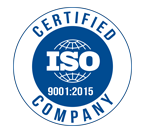Biologically Active Small Molecules, Cayman Chemical, UN2811, 500 µg
-
Microcystin-RR
Cayman ChemicalA toxin produced by cyanobacteria that inhibits the catalytic activity of protein phosphatases PP1C, PP1γ, and PP2A with Ki values of 0.15, 0.24, and 0.018 nM, respectively.
-
17ß-hydroxy Wortmannin
Cayman ChemicalAn analog of wortmannin; irreversibly binds PI3K; inhibits recombinant PI3K and mTOR (IC50 = 2.7 and 193 nM, respectively) and prevents the growth of LNCap cells (IC50 = 1.46 μM).
-
1,24-dihydroxy Vitamin D3
Cayman ChemicalAn analog of 1,24-dihydroxy vitamin D3 which, when used in a 4 μg/g ointment, suppresses psoriasis; inhibits the growth of both normal and psoriatic human keratinocytes (IC50 ~ 10 nM) via the vitamin D receptor; suppresses the production of RANTES and IL-8 by human dermal fibroblasts.
-
4-deoxy Nivalenol
Cayman ChemicalA natural type B trichothecene produced by certain species of the fungus Fusarium; inhibits protein biosynthesis, binds to peptidyl transferase, and inhibits the synthesis of RNA and DNA; passes the blood-brain barrier at different rates in different animals.
-
25-hydroxy Vitamin D2
Cayman ChemicalAn intermediate produced from vitamin D2 by cytochrome P450 isoforms in vertebrates; subsequently metabolized to 1,25-dihydroxy vitamin D2, which is an agonist for the vitamin D receptor.
-
Antimycin A1
Cayman ChemicalAn antibiotic that inhibits complex III of the mitochondrial ETC, preventing electron transport between cytochromes b and c, which results in the production of superoxide and eventual cell death; inhibits Bcl-2 and Bcl-xL proteins, inducing apoptosis.
-
Prostaglandin E1 ethyl ester
Cayman ChemicalAn esterified form of the free acid which may be more amenable for certain applications.
-
Diclofenac-d4
Cayman ChemicalIntended for use as an internal standard for the quantification of diclofenac by GC- or LC-MS.
-
Fusarenon X
Cayman ChemicalA type B trichothecene mycotoxin found in cereals contaminated with certain Fusarium species.
-
1,25-dihydroxy Vitamin D2
Cayman ChemicalThe active circulating metabolite of vitamin D2 formed by 25-hydroxylase in the liver and 25-hydroxyvitamin D-hydroxylase in the kidney.
-
Citreoviridin
Cayman ChemicalA mycotoxin that inhibits the mitochondrial ATP synthetase system; inhibits soluble ATPase (KD = 4.1 µM), ADP-stimulated respiration in isolated rat liver mitochondria (KD = 0.15 µM), and ATP-driven reduction of NAD+ by succinate (KD = 2 µM).
-
(±)-Verapamil-d3 (hydrochloride)
Cayman ChemicalAn internal standard for the quantification of verapamil (hydrochloride) by GC- or LC-MS.
-
Ikarugamycin
Cayman ChemicalA macrocyclic antibiotic that exhibits cytotoxic effects in cancer cell lines, inhibiting cell proliferation (IC50 = 221.3 nM in HL-60 cells); 1-4 μM inhibits oxidized LDL-induced accumulation of cholesteryl esters in macrophages; inhibits clathrin-coated pit-mediated endocytosis.
-
Prostaglandin E1 Alcohol
Cayman ChemicalA non-irritant bronchodilator with relaxant activity on human bronchial muscle; binds to the mouse recombinant EP3 and EP4 receptors with Ki values of 330 and 190 nM, respectively.
-
Fumonisin B2
Cayman ChemicalA mycotoxin from F. moniliforme, a fungus of grains; at 1 μM, inhibits sphingosine N-acyltransferase; fumonisins, found as contaminants in foods, induce apoptosis via altered sphingolipid metabolism, resulting in hepatotoxicity and nephrotoxicity.
-














